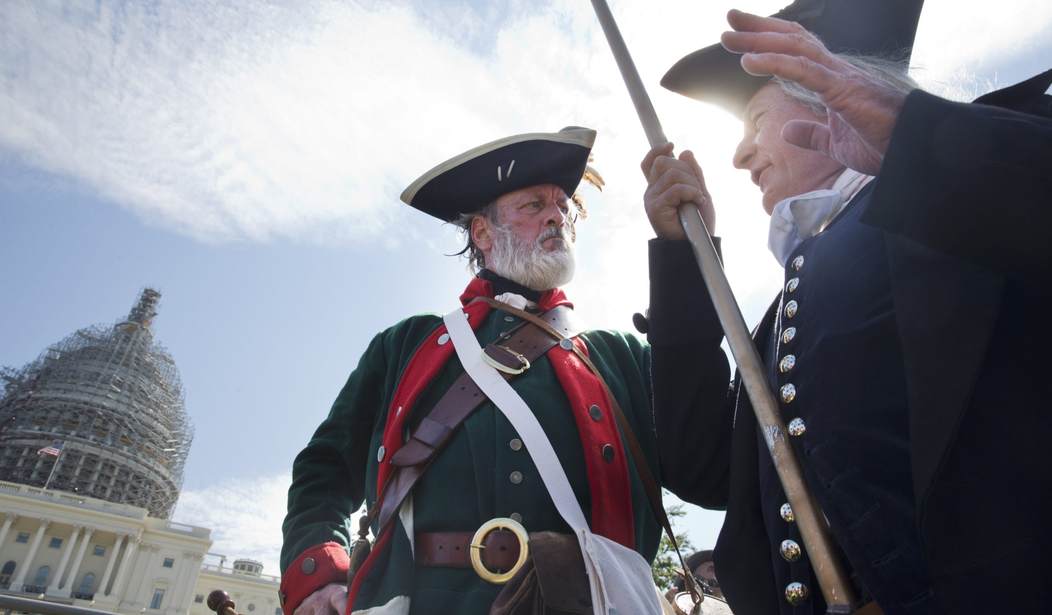From left and right, we have seen civil disobedience in response to perceived government persecution. Whether the demonstration involves Black Lives Matter or the Citizens for Constitutional Freedom in Oregon, it raises questions regarding the intersection of free speech, property claims, and the necessity to maintain law and order.
When does a protest become a revolt? When is civil disobedience morally justified? What limits, if any, apply to protest on public property?
In discussing such questions with supporters of both Black Lives Matter and the Citizens for Constitutional Freedom, one finds similar rhetoric. Both movements offers justification paraphrased like this:
We have been wronged. We have a right to protest. The righteousness of our cause, combined with the sanctity of free speech, grants us license to proceed as we have. We’re particularly justified in occupying public property, because such property belongs to the people.
This sentiment is offered as a package deal. You are meant to accept all of it. If you question a particular aspect, or attempt to distinguish concepts which properly ought to be considered separately, you will be counted against the whole package. You get no credit for questioning law enforcement practices unless you also support Black Lives Matter demonstrations. You get no credit for opposing the Bureau of Land Management unless you also support the occupation of a federal building in Oregon.
If we care about truth first and foremost, we must cut through such rhetoric and address the intertwined issues methodically. We must reject the package deal and think à la carte. There are several factors in play surrounding these grievance movements, and one must understand those factors before staking out a position on the movements themselves.
First, we should seek objectivity. Take the specific grievances off the table and judge without political bias. It doesn’t matter whether we’re talking about blacks protesting police brutality or ranchers protesting federal usurpation. What matters is how anyone, regardless of grievance, may properly petition for redress. There’s protest. Then there’s civil disobedience. Then there’s outright revolution. When and where is it appropriate to protest? When is civil disobedience moral? At what point has revolution become justified?
Let’s start with protest. The freedoms of speech and assembly do not grant license to trespass. I can’t hold a rally in your living room without your permission. Denying me permission does not encroach upon my freedom. I can still speak, just not in your house. You control the terms of access. That’s what property means. The same concept applies to a place of business. It also applies to public property.
The notion advanced by many that public property “belongs to the people,” and therefore may be accessed at whim for any purpose, has no basis in history, reason, or law. Public does not mean, and has never meant, owned in equal share by each and every person. If you occupy a public library after its operational hours, you become guilty of trespass. If you occupy it during operational hours, but make noise in violation of the rules, you may be asked to leave and lawfully removed. In fact, all public property is held for defined purpose and governed by public policy. Try waltzing onto a military base without authorization and claim “public property” as a defense. We all know how that would work out.
From this we may rightly conclude that, when Black Lives Matter shuts down an airport or Citizens for Constitutional Freedom occupies a federal building, they have taken their protest too far. There is a right to protest. There is not a right to protest however you like, wherever you want. That is why, when the Tea Party held all those rallies in years past, they sought and obtained permits from relevant authorities. They sought not permission to speak, but permission to use public property for a given purpose. Being denied such permission does not violate one’s right to protest unless others have been granted such permission under similar circumstances.
Setting that aside, what about civil disobedience? When is it moral to break the law in protest? Are the trespasses of Black Lives Matter and the Citizens for Constitutional Freedom morally justified?
Here’s a rule of thumb. It proves morally appropriate to engage in civil disobedience only when the law you break is immoral. For instance, if you sit down at a lunch counter in violation of Jim Crow, your act stands in direct defiance of an unjust law. By contrast, there is nothing immoral about trespass laws, and thus no virtue in breaking them.
In the Oregon controversy, the Citizens for Constitutional Freedom claim to have “taken back” land that was unjustly seized from rightful property owners. Some may therefore consider their occupation a moral act of civil disobedience. However, the group lacks clear backing for their claim. No specific case has been offered as to whom the land was “stolen” from, and no such victim has requested these militiamen act on his or her behalf. If they were occupying someone’s property to protect it from seizure, they would have a much clearer moral claim. Occupying land long held by the government, and demanding it be “given back” to “the people,” proves more dubious.
What about revolution? Few stand in confident defense of government. Surely, whether we reference police brutality or federal usurpation, most of us would agree that there have been numerous and egregious violations of individual rights. So when is enough finally enough? When do we dispense with lawful protest and minor acts of civil disobedience and launch into full-blown revolt? The Declaration of Independence, the quintessential American document on the subject, presents a sensible standard:
Prudence, indeed, will dictate that governments long established should not be changed for light and transient causes; and accordingly all experience hath shown that mankind are more disposed to suffer, while evils are sufferable, than to right themselves by abolishing the forms to which they are accustomed. But when a long train of abuses and usurpations, pursuing invariably the same object evinces a design to reduce them under absolute despotism, it is their right, it is their duty, to throw off such government, and to provide new guards for their future security.
The question therefore becomes whether we have reached this point of “absolute despotism.” If we have, then perhaps these grievance movements act with moral authority.
That said, it proves difficult to argue that revolution is justified when many paths of petition have yet to be fully explored. Where has been the concerted political campaign or rigorous legislative effort to reform law enforcement practices? What effort has been made to abolish the Bureau of Land Management through legal means? Can any modern movement claim that it has exhausted every possible means of pursuing its goals? Or is it simply easier and more cathartic to agitate though demonstration than to organize effectively?
These are questions worth pondering. When the founders declared their independence, their move was a long-considered and well thought out last resort. They were prepared with the means “to provide new guards for their future security.” Can today’s revolutionaries claim the same?









Join the conversation as a VIP Member